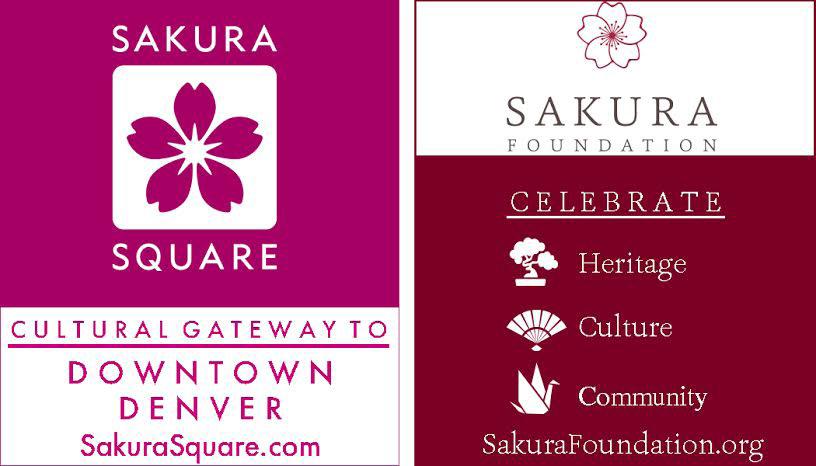YEAR OF THE RABBIT 2023























Lunar new year falls on January 22, 2023. Asian Avenue invites you to celebrate with us on Saturday, January 14 at Empress Seafood Restaurant. We will enjoy a lion dance performance, hand out red envelopes, and eat a 10-course Chinese banquet dinner. Tickets are available at: asianavemag. ticketleap.com/2023lny.
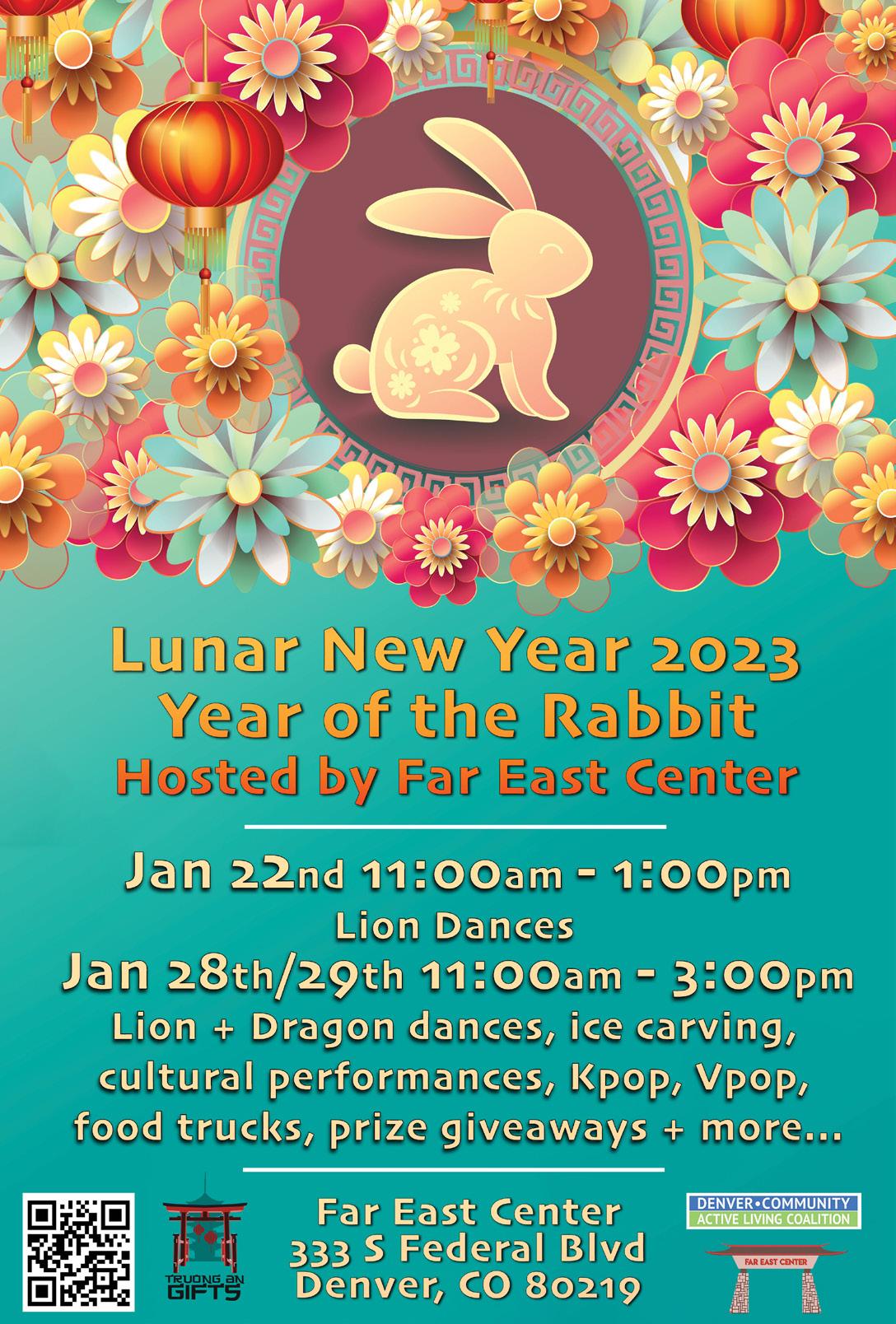
There will also be more celebrations across the Denver area including at George Washington High School with the Denver Chinese School on January 21, at Empress Seafood Restaurant with Denver-Kunming Sister Cities Committee on January 28, and at the Far East Center on January 22, 28 and 29. The largest event is held each year by the Nathan Yip Foundation; on February 4, they will hold their Chinese New Year Party at the Grand Hyatt.
The Year of the Rabbit is expected to promote strengthened bonds with loved ones. It is considered an auspicious time to start a family in 2023.
If you are looking to celebrate at home, local community members share the foods they eat and traditions they do during this time of year. Make sure to clean your home before January 22, so you don’t sweep away any good luck or fortune! Read about your 2023 predictions based on your Chinese zodiac animal year. If you’ve already forgotten your new year’s resolutions, the lunar new year gives us a second chance to start again! Happy Year of the Rabbit! May this new year bring you peace and joy!
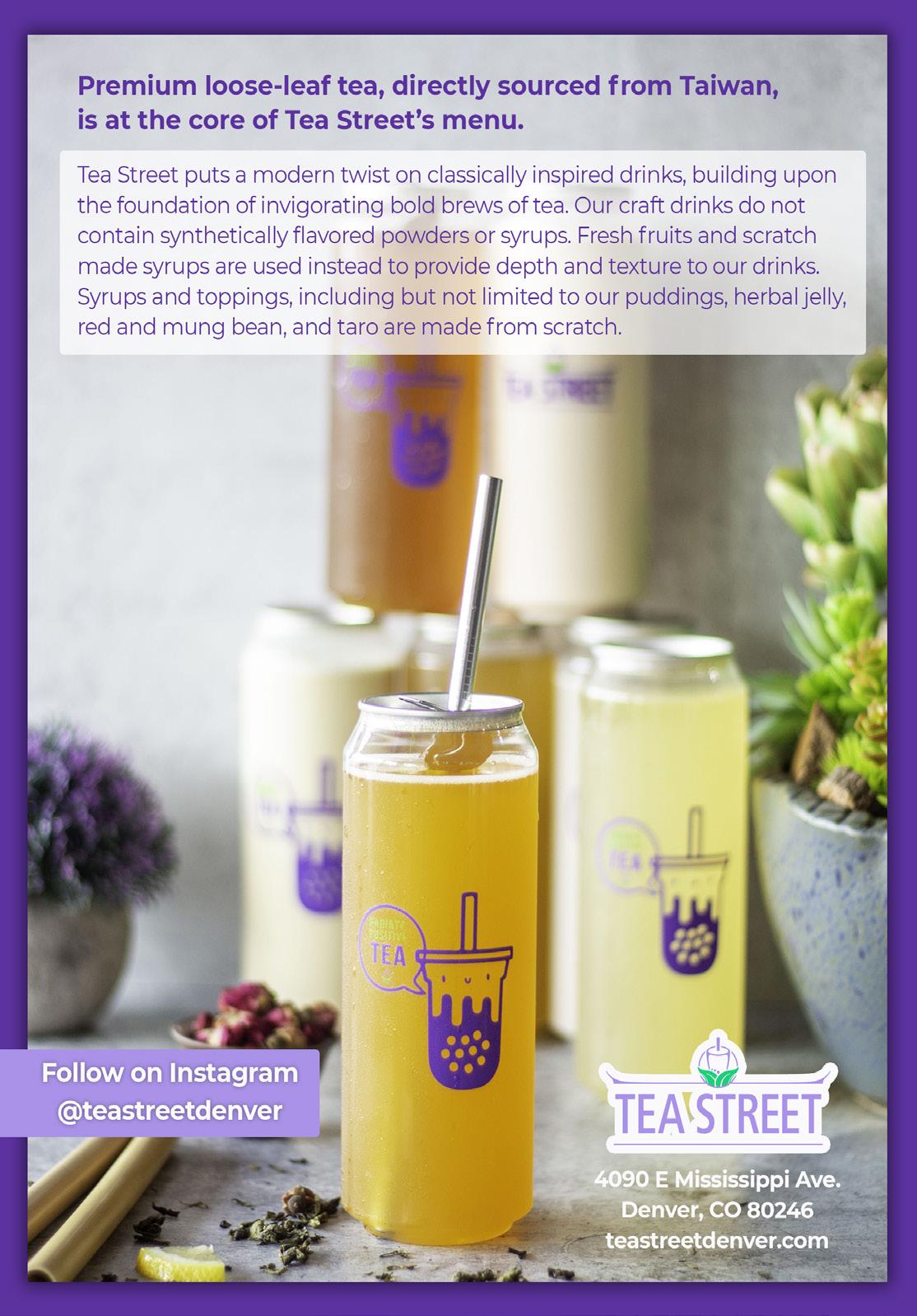
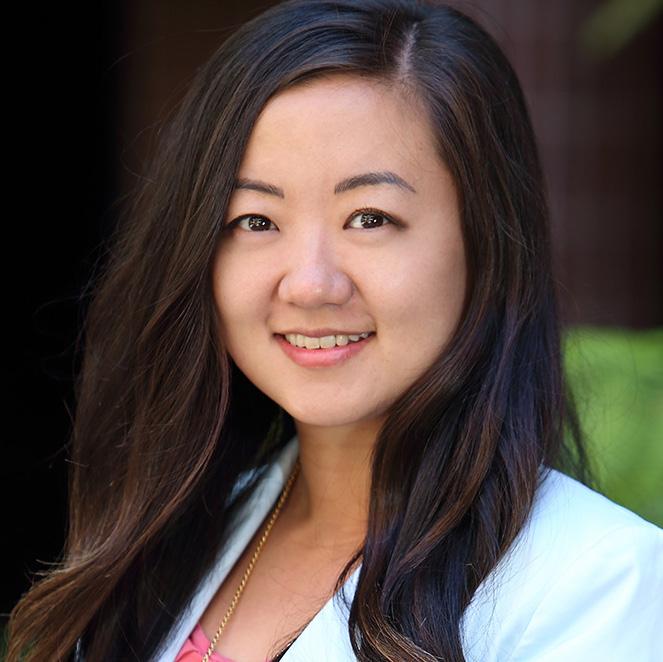

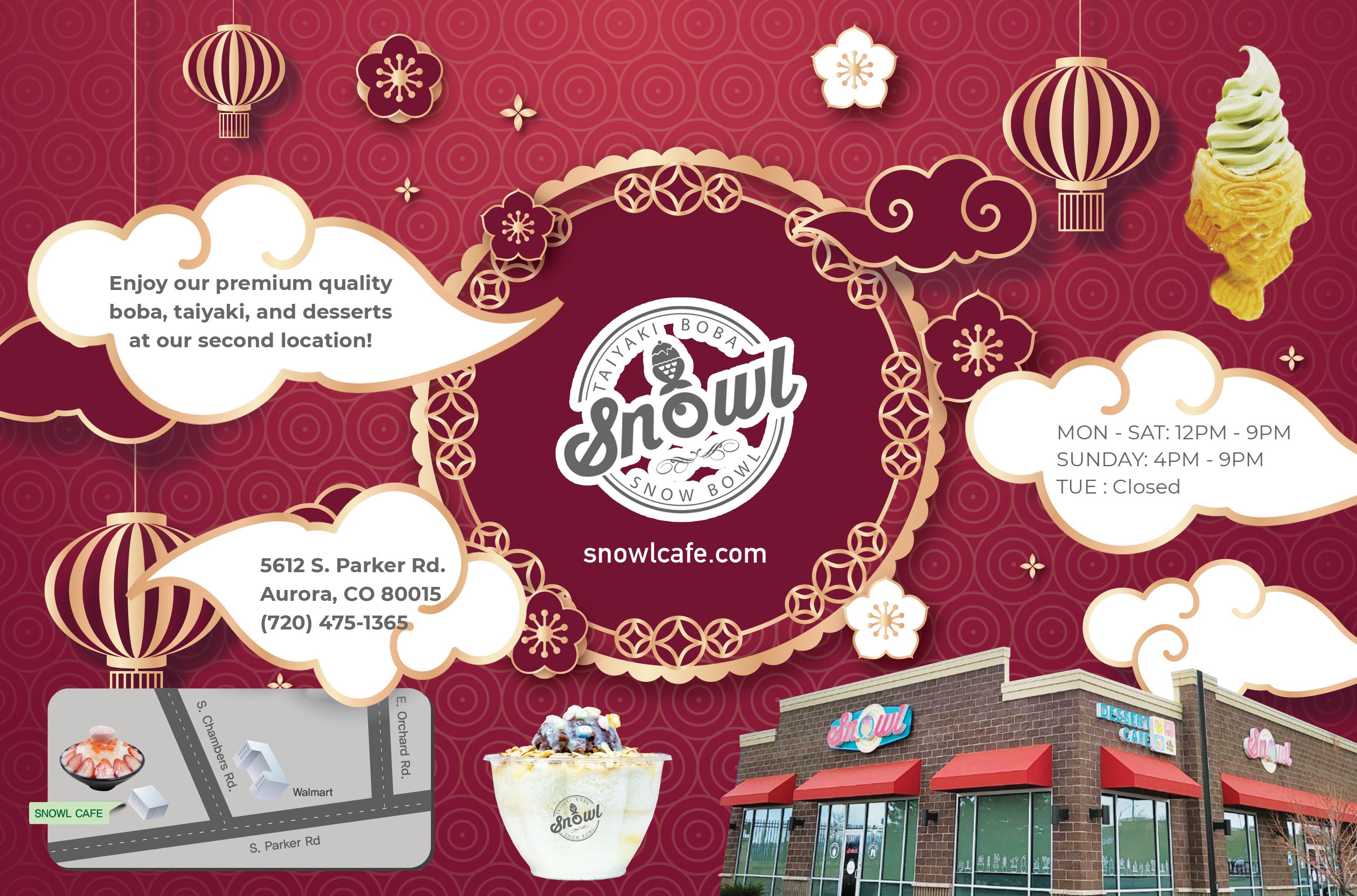









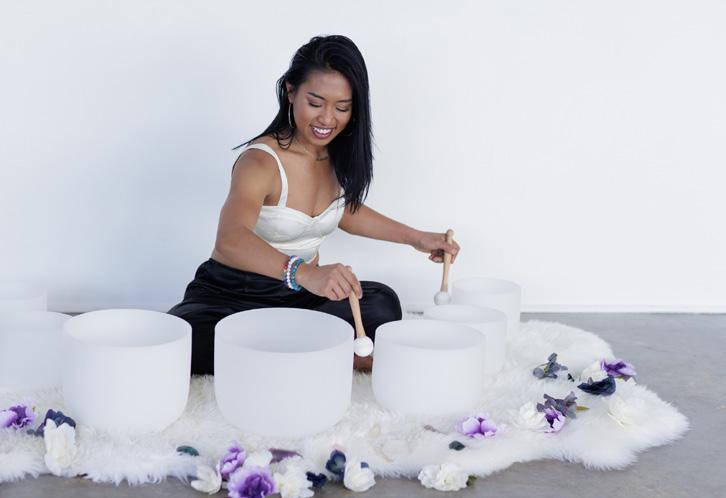
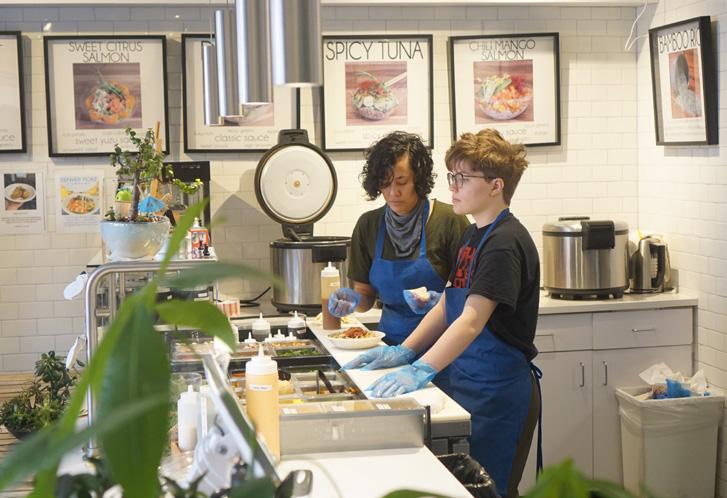

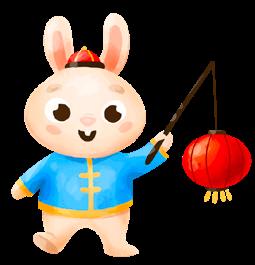
How did you first get involved with taiko (Japanese drumming)?
My high school had a taiko club as a club activity. When I first entered school, there was a time when each club introduced its activities to recruit new students, and at the end of the introduction, the taiko club played a piece.
I was first exposed to the sound of taiko then, and got goosebumps and couldn’t get my eyes off of them.
And when I imagined myself playing on this team, my feelings were so fierce that I decided to join this club, and that was the beginning of my taiko story!
I spent the next three years immersed in taiko, and upon graduating from high school in 2011, I joined Kodo’s apprentice program, and became a junior member in 2013, and then an official member the following year, 2014.
What attracted you to joining Kodo versus other taiko groups?

There are so many great taiko groups in Japan. When I was considering my career path, I went to see performances by several groups who perform professionally.
It just so happened that Kodo was the one that moved and excited me the most when I saw them perform. It was a place where I could enjoy my life to the fullest.
As a high school student, I had a gut feeling. And now I am convinced that it was the right choice.

What has been the most memorable experience or performance for you?
The moment when music transcends barriers. I have visited many countries, but I don’t speak their languages well.
But at the end of every performance, at the moment of the curtain call, I can feel an atmosphere that is unmatched by anything else.
We are from different races, languages, and values, but when something permeates the audience with just the sound of our drums, I realize that there really are no barriers between us at all.
Where around the world have you performed or travelled to?
Kodo itself has now traveled to 53 countries and territories around the world. I have toured so far in the UK, Italy, France, Germany, Belgium, Switzerland, Poland, Denmark, Finland, Estonia, Lithuania, Austria, Croatia, Russia, Hong Kong, Korea, China, Canada, and the USA!
In Colorado, I have performed in Denver and Fort Collins!
What do you enjoy most about teaching taiko to others?
Taiko has a very simple appeal in that anyone can make a loud sound by striking the drum. We have performances where we go to schools and perform in front of children, and we actually have
the children play the taiko too. In fact, there are many children in Japan who have never played taiko before.
At first, everyone is nervous and they all seem stiff, but as they beat the taiko, we can tell their minds and souls are gradually released.
I feel this is the power and appeal of taiko, where one can embrace being themselves to the fullest. When I teach experienced taiko players and Kodo apprentices, I try not to force my ideas and methods on them. Everyone is unique, so I want them to practice with as much freedom as possible.
What do you want people to know about Japanese culture and taiko drumming?
Traditions survive through innovation. As taiko drummers, we want to preserve this culture. Please come to the theater and listen to our sound first. We are confident that we will knock your socks off!
We are all currently living in the middle of a very turbulent time. You may face many obstacles, and there are times when you may feel powerless and helpless to do anything.
For Kodo, taiko is our way of standing up for what we believe. Being mindful of our well being, we will continue to bring the power of music to the world and to you through taiko!
Jun will be performing in Kodo One Earth Tour: TSUZUMI with Kodo Taiko Performing Arts Ensemble on February 18 and 19, 2023 at the Newman Center in Denver. Get tickets at: newmancenterpresents.com. Electrifying, dazzling and uplifting! Get tickets at newmancenterpresents.com.Music is an universal language. Tapping to a beat is contagious. How can we take that energy and turn it into a healing force?
With the combination of energy, sound, and vibrations, Filipina American Christina Ifurung offers a way to heal oneself through sound baths. It is a time to surrender, receive, and heal—a theme she shares often on her Instagram @christina.ifurung.

“Music has always been a vital part of my life. Growing up, I remember karaoke nights with my family,” said Ifurung, 37. “My parents would blast 70s and 80s Rhythms and Blues (music) throughout the house. There was something so special about a beat connected to my soul.”
“I named my energy medicine practice, Kapwa (derived from the word, Pakikipagkapwa) because my ultimate mission is to bring in the sacredness of ONENESS,” she said.
“In the practice I share, either in a one-to-one experience or as a group, my hope is to provide someone a safe space to see themselves and explore their truth and life journey, so that we can group into compassion for one another. Healed people heal people. Before you rule out if this practice is for you, I invite you to connect with me first and draw in your childlike wonder to ask questions.”
Ifurrung’s journey started with honoring her ancestors. In a dream, her grandmother revealed that this is the journey she should follow to heal herself, her family, and community. Already practicing as a registered nurse, this vivacious woman deep dived into learning more about sound baths. To gain insight, she shared her dreams with her family, and her husband purchased her first crystal sound bowl.
“I cried when it arrived. The first time I played the bowl, it literally struck a chord in my heart that pulled me in,” she said. “I fell in love with its frequency, its power and compassion it vibrated with one strike and sound.”
For the past year, Ifurung has hosted several hour-long sessions throughout Denver, collaborating with organizations such as the Filipino American Community Center. Last October, designated as Filipino American Heritage Month, organizer Domingo Belen invited Ifurung to host a session which was attended by young adults and youth. Belen admitted he is not a religious or spiritual man but found the group session calming and revelatory in a
vision about his father.
“When she started the “healing sounds” using the bowls, I found myself really tightening up. I just did not want to release myself into the moment,” he shared. “After 20 minutes, I started to let go and found the sounds mesmerizing. It was just touching parts of my inner being that I thought did not exist.”
Belen remembered a memory with his dad on a fishing trip to the North Shore— walking a makeshift trail that his dad built to get a special fishing spot.
“The session was really emotionally draining for me, but I was definitely at peace,” Belen expressed.
“Being a Filipina-American, I was always caught in the middle of not being enough—not Filipina enough, not American enough.” Ifurung said. “Until one day, I looked at myself in the mirror and understood what it meant for me to accept myself first, and to love that I experienced both sides of life.”
She shared stories from grade school when teachers attempted to correct her English. Or the times her relatives would hand over papaya soap because her skin color was too dark.
“I have the privilege of being American while submerging myself in the deep and richness of Filipinx culture,” she said. “I share this message because no matter what side you may be on, you deserve to be loved. You deserve to be seen.”
Throughout the session, Ifurung motivates loving oneself in the moment.
“Being in the limelight is not natural for (Filipinxs), yet there is always something very magnetizing about Filipinxs and their kind nature to draw others in. That is the vibe,” she said. “That is the energy. That is Kapwa.”
Sessions with Christina
Ifurung’s sanctuary is based in Centennial, where she offers one-on-one sessions. At Urban Sanctuary, a BIPOC-owned yoga studio in RiNO, she also provides a monthly session as the Kapwa facilitator. On the first Sunday of the month, Ifurung’s session costs $33. Visit www.urbansanctuary.love to sign up.
The practice of sound therapy and sound healing gives opportunities to surrender. Ifurung indicated the constant busyness of one’s life makes it difficult to heed to the sounds and vibrations in one’s daily routine. In her session, she teaches how to practice breathing and to listen to the sound bath with more intentions.
“We do not take the time to rest, and this is the opportunity to do that,” said Ifurung, who grew up in San Diego.
For group sessions, participants are welcome to bring a yoga mat, a tiny pillow and even a blanket. Participants roll out their yoga mat and get comfortable whether it is laying down or sitting up. Some repeat participants even bring an eye mask to cover their eyes as way to “be in the moment” with greater intentions.
Hypnotic, some might take a restful one-hour nap. The melodic bell sounds are soothing, calming, and enchanting all at once. Slowing down is a chance for rejuvenation, even if it’s just for one hour. It also provides an opportunity to energize oneself for more creativity or to begin the day on an uplifting note. Attendees have also brought images or objects of their dearly departed to honor them.
For those who are superstitious and suspicious, Ifurung challenges the critics by hoping to educate them about alter-
native healing methods. With permission, she hopes she can open their mind up to learning.
“Many times, alternative therapies have a misconceived idea that it is “witchery” and in fact, it’s the exact opposite. So, explaining that science proves that we are all matter made of atoms and atoms are energy.” she said. “If we are all energy, there is a profound way that we respond to vibration. It’s no different when we hear a song that takes us back to a certain place and time.”
Music brings back the memories of listening to it the first time or recalling a moment with a loved one.
“Sound healing is a vibrational journey. As an energy practitioner, it is not my job to convince anyone what they should and should not believe for spirituality is very individualized and my mission is not to make them believe but to trust in what they feel.” she said. “The energy within, if they feel open to the experience, I always offer to hold a sound bath for them.”
For the third year in a row, Kapwa will co-host a spiritual weekend retreat for women at the Lake of the Ozarks in Missouri on April 21 to 23, 2023.
Sign up on her mailing list via her website (christinaifurung.com) to learn about upcoming sessions. Follow or connect with her on Instagram, Facebook, and TikTok @christina.ifurung, and reach out to her about personal and corporate private events or retreats.

 Photo Credit: Derrick Trujillo
Photo Credit: Derrick Trujillo
Every year, Lunar New Year is celebrated by more than a billion people globally, including in China, Korea, Vietnam, Taiwan, Mongolia. It marks ushering the next lunar calendar, and 2023 stands as the Year of the Rabbit.
This year, Lunar New Year begins on January 22 and ends on February 9. Typically, in Asian countries, the public holiday means seven days off from work in offices, banks, factories, and shops, but it is a total of 15 days of celebration. In China, Lunar New Year is also known as the Spring Festival.
Before the celebrations begin, most households will decorate their home with red lanterns, elegant orchids, kumquat trees, red paper for windows and doors, and hang paper calligraphy displaying the inverted fu Chinese character (“fu” translates to happiness, luck, and good fortune).
Lunar new year feasts include dumplings, noodles and fish dishes. Dumplings, shaped as silver ingots that represent the currency of ancient China, are meant to bring in more wealth. Noodles signify long life, while fish symbolizes wellbeing and prosperity. Eating fish brings a surplus of money and good luck.
Scaring away bad luck is why firecrackers and fireworks are used during these celebrations. It originates from a folktale about a monster Nian who was scared away by firecrackers. Loud drum rolls and huge bells are also great substitutes for firecrackers.
Stuffed with cash, coins, gift certificates and or even lottery tickets, red envelopes are the gifts commonly sought during this celebration. Typically, red envelopes are given to children, unmarried adults, and even elderly parents. Parents, godparents, aunts, and uncles are usually the givers of red envelopes.
China is not the only country that observes Lunar New Year as a public holiday. Chinatowns, from all over the world, as well as Vietnamese and Korean communities celebrate this annual holiday. They include metropolitan cities of Sydney, London, New York, Chicago, San Francisco, Las Vegas, Vancouver, and Los Angeles.
“
Eating with family, playing Bau cua tom ca game, red envelopes, lion dance, decorating our home with plants, flowers, and fruits.
- Mimi Luong Ye, Owner of Truong An Gifts
“
We are visiting the Vietnamese communities in orange county, ca, for tet, and taking our children to Disneyland, while the adults in the family head to Universal Studios.
- Long Nguyen, Denver
“
We feast with family and friends a buffet of at least 30 dishes, play mahjong, and enjoy lots of fireworks. we then have a second dinner since there is a lot of waiting until midnight and Giving and receiving red envelopes.
- Eve Li, member of Crazy Hungry Asians of Colorado
During Chinese New Year, we gather with family and have a big meal either out or cooked at home. The dishes served are selected for their similar sound to other Chinese words that have good fortune tied to them. There are also specific ways some dishes are served/prepared.
Chinese New Year Foods
Fish is always served as the word “fish” in Chinese sounds similar to the word for extra/surplus. So having the dish is similar to having extra/surplus for the upcoming year. The fish also should be served with the head and tail still intact. This is so the front and tail portions of the fish can be left over to be eaten on New Year’s Day symbolizing that the New Year will start and finish with extra/surplus. The type of fish is also chosen for the fact that the name sounds similar to another good fortune word. Crucian carp is often used for the dish since its name in Chinese sounds like the Chinese word for “good luck.”
Dumplings are another classic lucky food. They can be made to look like the gold ingots used as currency in ancient China. The more dumplings one eats signifies the money they can make in the new year. Traditionally dumplings with cabbage and radish and a type of meat are desired. These are then placed in a line on the plate not in a circle as a circle implies that one’s life will go around in circles, never getting anywhere.
Glutinous rice cake also is served for New Year’s Eve dinner. The sound of this dish is similar in meaning to getting higher year by year. Meaning the higher you are the more prosperous you are. This applies to things like a rise in success, better grades in school, children growing taller, and promotions at work.
Sweet rice balls are eaten as a symbol of family togetherness. The round shape is associated with reunion and being together. During the New Year much of the celebration is with family thus this dish helps to symbolize the union that a family has and the wish for success for all of the family in the upcoming year.
Noodles are served for their sym-
bol of longevity. This one my mom really insists on even if someone doesn’t like it, she insists they have at least one bite. For New Year, the noodles are special and called Longevity Noodles. They are longer than normal noodles and uncut as they symbolize life. One does not want life cut “short” so symbolically the noodles remain long and uncut.
Tangerines are eaten during the dinner as they symbolize fullness and wealth. The fullness is due to their round shape, and the wealth is due to their golden color. In Chinese the name is similar to the word for “luck.”
Then afterwards, we go to our individual homes and make sure to avoid fighting with others during the next few days and make sure to keep the front porch light on as well as the entry way light. We also avoid cutting our hair as the sound of hair in Chinese is similar to luck so one does not want to “cut” their luck.
During these next few days, we return to our parent’s house to pay respects to our ancestors by offering incense and burning various afterlife items as it is believed that these items that are burned are presented to our ancestors in the afterlife. Things such as paper clothes and money, are fashioned as afterlife items.

We make sure to wish those we meet a prosperous new year with the phrase “Gong Hey Fat Choy.” If one is not married, red envelopes with tidings are passed to them. Once married, they no longer receive the red envelopes from anyone except family. After having kids, the kids receive the red envelopes from others and will do so until they are married.

As we say in Cantonese at the New Year, Gong Hey Fat Choy (let’s get rich)!
Moy and his family live in Parker, Colo.

The Lunar New Year comes early in 2023, as the Year of the Water Rabbit, begins on January 22, 2023 and ends February 9, 2024. The Rabbit is a symbol of prosperity and peace in Chinese culture, and it’s expected that all of the animal signs will have a “hopeful” year in 2023. The Rabbit is the fourth animal in the 12-year cycle of the Chinese zodiac signs.


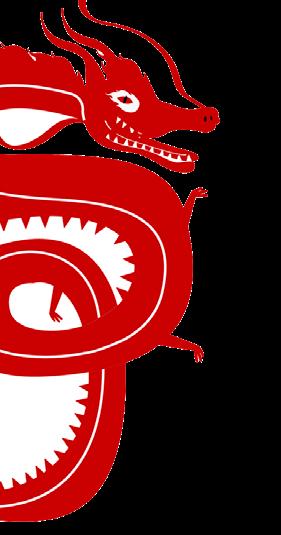
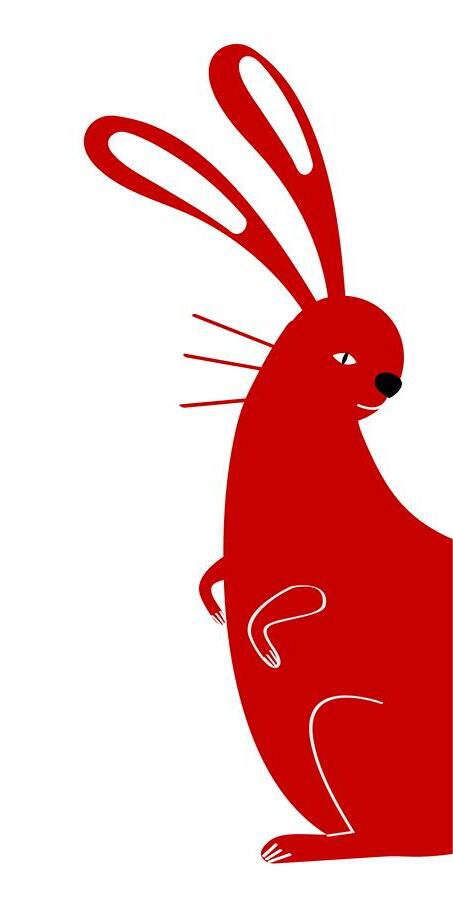
Rat people “will encounter difficult troubles” in the new year. This is a year where you need to focus on hard work and dedicated effort. Ignore the naysayers and those who do not have the courage to say to your face what they rant about behind your back. If you’re able to keep your eye on the prize, nothing and no one can stop you from achieving great success. Just make sure you do not compromise on your physical and mental health in pursuit of your ambitions.
The Ox and Rabbit are known to help each other, so good fortune is on the rise for Ox in 2023. Many who are single might find themselves to be lucky in love this year. Those who are coupled-up, might wish to consider taking their relationship to the next level. If you desire to have children, this year could prove to be a particularly blessed one. Ox is encouraged to work hard and seize every opportunity to make this year even more successful.

This will be a balanced year for those that are Tigers. Your fortune will be better than in 2022, but there will be some twists and turns in the process. Tigers are predicted to be very comfortable in life and work, but it will be important to put aside egos, learn from failures, and examine any shortcomings. Be sure to express gratitude to all those who help you along the way. This year, it would be wise to be conservative with your spending and investments.
Yes, 2023 is the year of the Rabbit, but it is believed that those entering their zodiac birth year must be prepared for adversity. Astrologers suggest making extra efforts everywhere and to face challenges head on. This year won’t be a particularly smooth one for Rabbits, with numerous twists and turns that will be surprising, but a rainbow will come after the storm. It will be key to remember to surrender to the greater forces rather than to fight them.
According to Chinese astrology, there is no need to worry because the lucky stars will guide Dragons in 2023. For career and finances, this year will be positive with people in positions of influence helping propel you to greater heights. Dragons might earn special tax breaks, or special bonuses or cash rewards. However, in matters of the heart, this year might test you and your temper, so regular meditation could prove to be very beneficial.
2023 will develop smoothly for Snakes with your luck being generally stable. Snake people may receive recognition from superiors, bosses, and people in high positions. Career growth is in the cards for you, but it will come after having to prove yourself. Those who are single, may find themselves not being so for too long. Those who are in a relationship, be careful not to create conflict for the sake of drama and excitement.

The year of the Rabbit might be quite tricky for Horses. The Horse will “enter a year in conflict,” which will have a great impact on your fortunes. 2023 is going to be full of ups and downs, and greater care needs to be taken at work. Be careful before taking bold risks – especially with finances. Avoid rushing through things because that might cause you to make silly mistakes, impacting your work. However, in terms of love and romance, this year may be pleasant and surprisingly prosperous.
Goat must take the practical and pragmatic path, if they wish to find a sense of balance and harmony in their day-to-day life. The more you get swayed by your emotions, the more you’ll find yourself in a sea of self-created chaos. A balanced body leads to a balanced mind, thus be sure to eat a balanced diet and practice the art of moderation. 2023 will be relatively turbulent for Goat, so it’s best to approach it with optimism and to enjoy the good times.
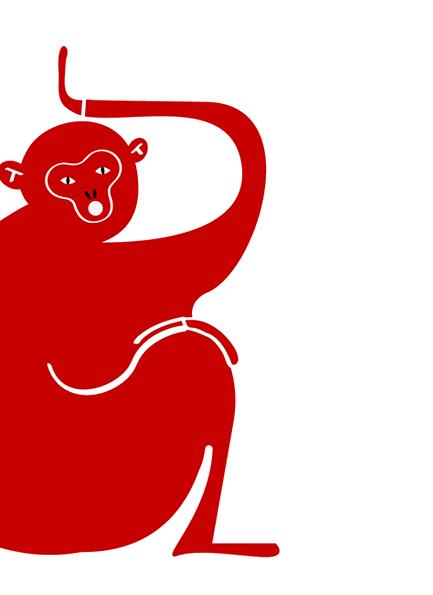
The Rabbit year will bring ups and downs, but Monkeys will be taken care of by lucky stars. For Monkeys, it will be best to persevere in your career and keep looking ahead. Before you know it, things will get far more exciting. You may see a steady rise in finances, but be sure to follow a healthy routine and maintain stable sleep-cycles for optimal wellness and overall happiness.
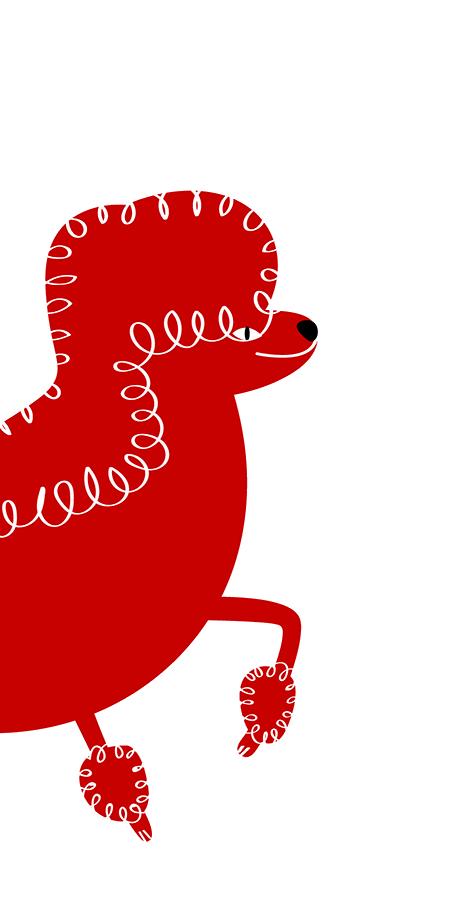
Rooster - 1957, 1969, 1981, 1993, 2005, 2017, 2029

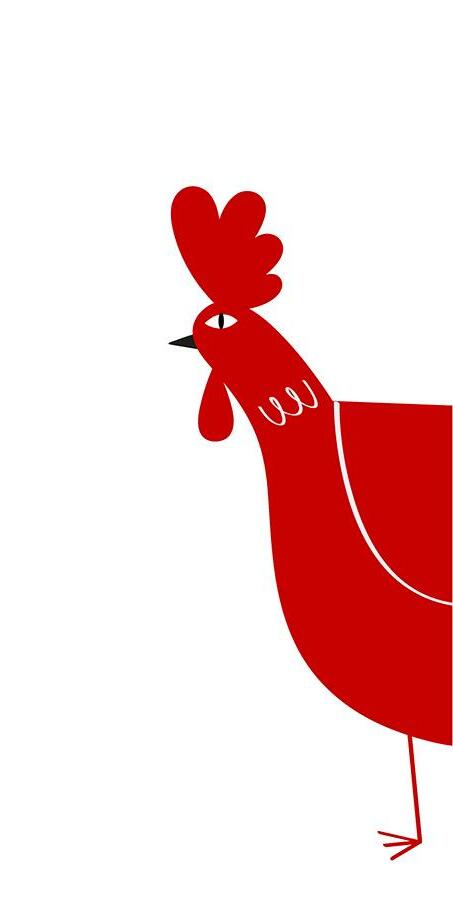
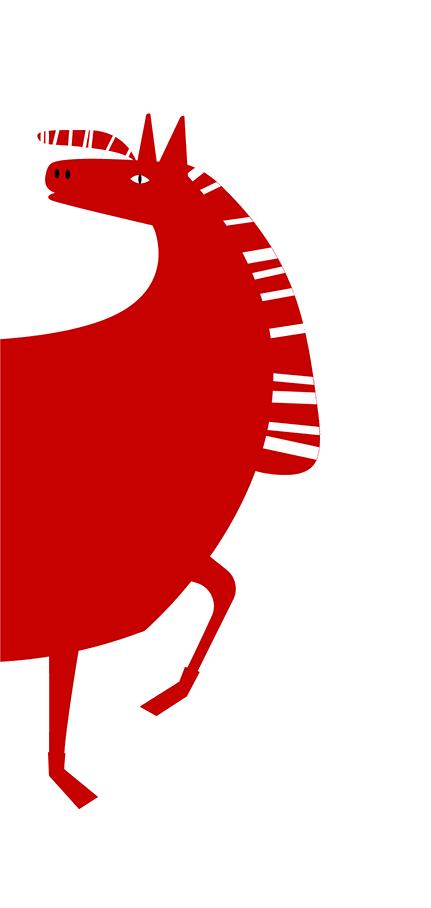
This is a year where Roosters cannot escape hard work or take shortcuts to achieve goals. Taking the easy way out might just complicate matters more, leading you to have to deal with more problems and strife. Avoid spending frivolously and focus more on saving. 2023 will require you to put in more effort than last year. But although the career and financial predictions look bleak, Roosters will have a good year for love.
Dog - 1958, 1970, 1982, 1994, 2006, 2018, 2030
Dogs are advised to do their “own thing in a down-to-earth manner” this year. For Dog people, this will be a pleasantly stable one with love and relationships being strong. However, Dogs may experience more decline in health and wealth - so pay more attention to these areas in the Rabbit year. There may be some unexpected events in your career, but rest assured that everything will eventually work out for the best in the end.
Pig - 1959, 1971, 1983, 1995, 2007, 2019, 2031
This year will be a rather delightful one for Pigs. Harmonious work relationships with colleagues and superiors may help facilitate your own rise up the corporate ladder. Those who run their own businesses may get new investors, partners, or new avenues of expansion. Love and romance will be harmonious, and many Pigs might experience an exciting surge of passions. It’s advisable to work hard to have unexpected pleasant surprises and gains this year.
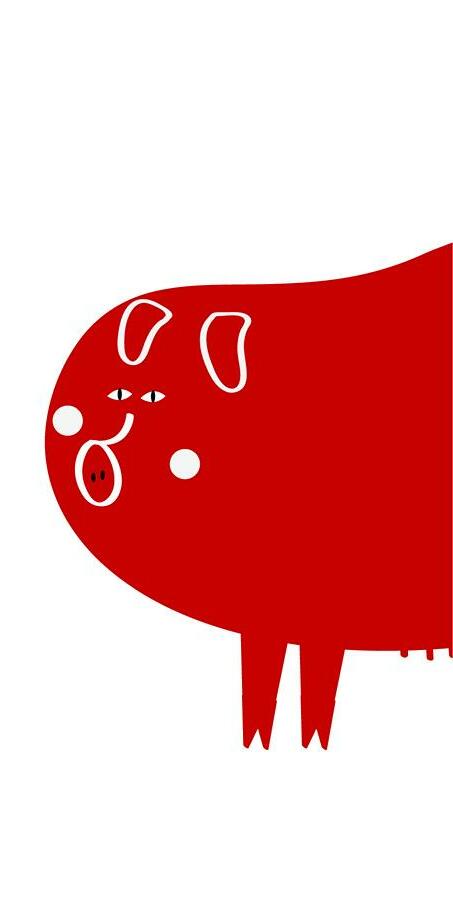
Denver’s biggest and most authentic Lunar New Year party will be held on Saturday, February 4, 2023 from 5 p.m. to 10:30 p.m. at the Grand Hyatt in Denver celebrating 2023’s Year of the Rabbit. All proceeds from the evening benefit The Nathan Yip Foundation, which provides funding for teachers and educational projects in rural Colorado.





Lunar New Year is the biggest and most colorful celebration in the East, and Denver’s biggest party gives this event an exciting twist in 2023 with a Chino-Latino theme. The evening will feature worldclass performers including lion dancers, a palm reader, a Chinese calligrapher, the traditional salad toss, a family-style dinner featuring both Asian-American and Cuban-American food, with a live 12-piece band, the Colorado Mambo Orchestra, and an authentic and interactive Chinese Night Market. Tickets available online at nathanyipfoundation.org/ event/chinese-new-year-party.
Lunar New Year is one of the most important celebrations of the year among East and Southeast Asian cultures, including Chinese, Vietnamese and Korean communities, among others.
The New Year celebration is usually celebrated for multiple days—not just one day as in the Gregorian calendar’s New Year. In 2023, Lunar New Year begins on January 22. 2023 is a year of the Water Rabbit, starting from January 22, 2023 (Chinese New Year), and ending on February 9, 2024 (Chinese New Year’s Eve).
The sign of Rabbit is a symbol of longevity, peace, and prosperity in Chinese culture. 2023 is predicted to be a year of hope. People born in a year of the Rabbit are called “Rabbits” and are believed to be vigilant, witty, quick-minded, and ingenious.
The Nathan Yip Foundation is named
after the son of the founders Linda and Jimmy Yip. The Yips lost their only son Nathan in a car accident in 2002. The Yips, with a team of volunteers and friends work tirelessly, through the foundation, to provide educational access, empowerment and ongoing support to K-12 educational projects in rural Colorado communities. The organization’s handson approach calls on educators to determine their area of greatest need and how they’d like to receive support.
The Nathan Yip Foundation then consults with partner schools and matches donor funds with these highly impactful projects, providing access to educational materials and support. By empowering educators, the foundation seeks to make a sustainable impact in a truly grassroots way. As a 501(c)(3) public charity, all funds are raised through public solicitation and then granted to projects selected by our diverse committee and Board of Directors.
Walk in someone else’s shoes. Imagine the past. Witness historical moments firsthand. This is what an immersive theater experience can feel like, as you watch history unfold before you.
In the play ZOTTO, audiences explore three generations of Japanese American women and their relationship to Denver’s rich yet sordid history as they encounter yokai and obake (Japanese spirits and demons) and other unexpected characters, discover hidden secrets within forgotten spaces, and engage with interactive elements that ask them to consider relationships between intention and impact.
“ZOTTO confronts our ties to the past and emphasizes the joy in collective community healing and the lasting impact of the choices we make, asking what kind of ancestors we want to be for future generations,” said Courtney Ozaki, Japanese Arts Network Founder and Producer/Artistic Director of Zotto.
Audience engagement | In ZOTTO, audience members don’t just sit in one seat. They are engaged by moving from one scene to another. All senses are used whether it is scent, taste, touch, and of course, sight.
ZOTTO is a retelling of a Japanese Ameircan family’s journey having to leave their homes and businesses to resettle in camps all around the US.

Emotions of overwhelming sadness are shared throughout the storyline,
while Japanese folklores are weaved into the historical context.
With restricted capacity, audience members were required to wear masks to protect each other and the actresses in close quarters.

Actresses and their performances | The all-women cast evoke all of the emotions of dealing with racism, gentrification, WWII incarceration, redlining and resettlement.
According to Joyce Yuriko Cole who plays Dr. Kitsu/Obachan, “I had to figure out which parts to share of our story because the effects of the incarceration went deep and wide.”
“You want to continue to be honoring of your family while also showing the devastation. Emotional stamina and focus were needed because sharing the traumatic moments of your life repeatedly, was exhausting.”
Cole is one of the descendants of Wyoming-based Heart Mountain incarcerees. While she is now a retiree, her monologue and ability to play two roles in ZOTTO is awe-inspiring.
Set scenes and design | Each set was designed to show the audience the retelling of history. With ornate detail, the doctor’s office, grocery store, and bar allows members of the audience to reimagine walking through these areas.
The grocery shop, for example, featured telephones that audience mem-
bers could pick up and listen to quick monologues. Others wrote on walls to share memorable family moments. In the background, the bickering between grandmother and daughter then brings the audience back to the present moment of watching a play.
Each actress’ costumes looked like customized tailoring and precise looks for the timeframe of the story. The vintage props were suited perfectly within the performance.
In synchroneity, the lighting and sound effects worked harmoniously together. There was never a moment when the audience could not hear each actress, no matter the location or placement of the activities.
Production and artistic direction | As the producer, writer, and artistic director, Ozaki worked her creative magic to bring to life this hidden story of Japanese Americans during World War II in Colorado. The production took place last November and December at Sakura Square.
Ozaki said, “It was really beautiful to have this group of six incredibly gifted actors and dozens of artists and creatives each bringing a different lived experience with their cultural identities, to ZOTTO.” Her hope is to host an encore run or another version of the show in 2023.
See the following interviews with the actresses and producer to learn more or visit zottofolk.com
Presented by Japanese Arts Network, ZOTTO is an immersive and multi-sensory supernatural Japanese folktale and theatrical journey.
Min Kyung is from South Korea and moved to the U.S to pursue her dream of being a performer.
AA: What was your experience like participating in ZOTTO?
Minkyung: A distinguishing feature of the show is that after finishing the last scene of one performance, we would jump back to the start and repeat the show from the top.
I wanted each audience group, who would be seeing the piece for their very first time, to have their own unique and immersive experience. So I had to be in the right state of mind to properly engage with the audience and tell the story. I also needed a process to reset back to the beginning properly, since the show ended in such an elevated state for me.
In my past experiences, performances usually ended with a curtain call and bow. A single performance of a play or a musical was a journey, and had a flow. However, ZOTTO had no curtain call and no applause, and so constantly looping back to the start of the story brought you back deeper and deeper into the story every time. I learned that I needed my own post-show ritual to let Yuri go at the end of the day.
I would like to acknowledge how much joy I’ve felt working with an all-fe -
A descendant of Heart Mountain
AA: What do you hope audiences will take away from ZOTTO?
Joyce: I hope our audience will leave with a desire to be a more positive influence in the world, to choose to walk in understanding and forgiveness, and to recognize the power we all have to influence lives.
AA: What inspires your creativity?
Joyce: I love people’s stories. I think I’m a storyteller at heart and have seen the power of just listening to people. Everyone wants to be seen. It’s when we’re only focused on our story that troubles begin.
AA: What advice would you give to those pursuing a creative life?
Joyce: Be resilient. Don’t let others be your source of identity and value. Walk the fine line of being teachable yet true to what is drawing your heart.
AA: What’s next for you and/or ZOTTO?
Joyce: Huge kudos to the ZOTTO team. They undertook a gigantic project because of a vision and showed remarkable heart, wisdom, compassion, and care throughout the process.
I hope ZOTTO continues because so many are unaware of this part of history. I hope to continue to be a part of it. In the meantime, I want to get back to pastels and being a grandma! My grandchildren keep me young, creative, and grounded.
male cast, with people of color, and with people who possess open minds and hearts. There’s been a constant warmth I felt inside from working alongside all of these talented and creative individuals.
AA: What do you hope audiences will feel from this immersive experience?

Minkyung: ZOTTO is a unique performance in the sense that everyone can walk away with a different experience. While my hope is that everyone who attended learned about Japanese American history, I also hope that this piece gave them a chance to reflect on their own lives. I believe that each scene of-

fered the audience a way to relate what was happening in front of them with their own lives, in their own ways.
I also hope that this production gave audience members a safe space to process some potentially raw and vulnerable emotions.
AA: What advice do you have for fellow artists/actors?
Minkyung: It’s no secret that living an artist’s life can be difficult; it’s full of rejection, challenges, and doubt. However, if this is what you really and truly want to pursue, I would say work your butt off, but have fun, and believe in yourself.
In my career as an actor, I’ve faced so much frustration, fear, and heartbreak, but I earnestly believe that this is my path, and I’m going to keep walking down it. I’d also say never stop learning, and to keep challenging yourself.
AA: What are your future projects?
Minkyung: This January, I’m performing in a musical called ‘Say My Name’, a story about a Korean immigrant preparing for a citizenship test.
The whole team that’s worked on ZOTTO made something special. I truly believe that ZOTTO will be back one way or another, and I’ll be keeping my fingers crossed for it to come back.
Courtney: I have dreamt about creating a show like ZOTTO which engages audiences in immersive and experiential storytelling for most of my life. I am very fortunate that my mind and heart were cultivated by opportunities to experience the magic of the arts by supportive parents (Teri and Charles Ozaki) who recognized its importance.
I am a third and fourth generation Japanese American, and I started the Japanese Arts Network (JA-NE) several years ago to create opportunities that uplift Japanese culture and history through artistic engagements like this one, and to provide platforms for Japanese and other marginalized artists to share their voices and experiences.
ZOTTO was initially born from the convergence of my professional experience as a producer with a passion for immersive theater, a love for community, and a strong connection to my identity and cultural roots. The journey continued by engaging incredible producing partners (Theatre Artibus, Luster Productions, Control Group Productions, Starry Night Productions) and many artists/creatives whose values of community-focused and artistically adventurous work aligned with my own.
Courtney: My greatest hope is that audi-
ences will walk away from experiencing ZOTTO feeling that they were able to connect to parts of themselves that may have been below the surface but needing to be seen. I hope that this show will help us to have greater empathy for one another, and to consider - as the show states - what kind of ancestors we want to be for future generations.
I also hope that people will leave the show asking questions and seeking-out more opportunities to learn about cultural experiences of Japanese and other marginalized communities in Colorado and beyond to better understand the parts of our histories that we can learn and grow from.
Courtney: I knew that going into this production it was going to be emotionally challenging as I worked through my own relationship with generational trauma and processed what my family’s experience was like as incarcerees in Poston, Arizona and Crystal City, Texas during WWII - but I hadn’t considered what it might feel like or put me through to relive this generational story multiple times a week - or night, for that matter.
I also was acutely aware of how much we were asking of our performers, with a show like this putting them through these emotionally raw and vulnerable states over and over again.
AA: What are you working on next?
Courtney: The Japanese Arts Network has many projects on the table for 2023 with
incredible partners. Personally, I will be looking to find a balance between sharing Japanese culture with communities and audiences in meaningful ways, and also strengthening and cultivating an ecosystem of support for independent creative producers in Colorado (particularly those of us working within experiential and immersive theater).

I am excited to be producing a dance theater production called IKKAI Means Once: A Transplanted Pilgrimage with choreographer Yayoi Kambara which will premiere in the Bay Area in February, and I also look forward to exploring ways to share the ZOTTO story in 2023 - whether it’s an encore run, a virtual reality version of the show, or something else.

AA:
Courtney: I am very grateful to have had the opportunity to work with this incredible cast of female-identifying actors - most of whom also identify as Asian American or women of color.
Thank you to Sakura Square for providing a space for us to create work like this. I plan to continue providing spaces and opportunities for people of color and marginalized people to be heard and seen, and I encourage other creators and theater makers to do the same.
This was a heart-filling experience, and I am grateful to all of the artists, producers, production team, supporters, and partners that made this work possible. Learn more about the Japanese Arts Network and connect with them at instagram.com/japaneseartsnetwork.

Dragon Tiger Noodle Co. by Chef Jet Tila, prides itself on its Pan-Asian dining concept inspired by every corner of Asia. dragontigernoodle.com
Hanneman. “We see people come back frequently, often with new family members and friends.”
Maverick Gaming™ is excited to announce the opening of Dragon Tiger Noodle Company. This landmark opening is the first celebrity driven restaurant in Central City or Black Hawk and represents the first Colorado outpost of venerated celebrity chef Jet Tila.

Dragon Tiger Noodle Company introduces a new Pan-Asian concept with dishes inspired by Jet Tila’s travels across Asia. Guests will enjoy the opportunity to build a unique bowl with a wide variety of noodles, broth, proteins, and vegetables to choose from. Ramen novices can sample Chef Tila’s favorite creations, while experts can build a perfect customized bowl. All items are served quickly using only the freshest ingredients.
The restaurant is the fourth Dragon Tiger Noodle Company by Chef Jet Tila, who has introduced his spin on Asian dishes in Nevada with two locations in Las Vegas and another in Henderson.


“We’re thrilled to see how visitors, players and local residents have responded so enthusiastically to Dragon Tiger Noodle Company,” said General Manager Dodd

In addition to the main dishes, the restaurant’s unique chicken Dragon Wings have proven to be a standout item on the menu, Hanneman said.
The restaurant, which is open daily from 11am to 9pm, is also the first Asian restaurant in Central City. On Saturdays, starting January 21, it will also feature entertainment with a rotating lineup of deejays spinning contemporary hits.
Jet Tila originally hails from Los Angeles where he grew up working in the Bangkok Market and at his family’s restaurant, Royal Thai, which first opened its doors in 1978. When he was a boy, Chef Jet’s Cantonese grandmother would pass down ancient recipes and traditions to him, which cultivated a deep passion for Asian cuisine from an early age. As a child born in the first family of Thai food in Los Angeles, Chef Jet says he was the kid doing homework in the back corner of his parent’s restaurant.
As he reached adulthood, Chef Jet went on to round out his culinary education at Le Cordon Bleau and the California Sushi Academy. Today, he is a James Beard and
Daytime Emmy award-nominated chef who has appeared on CBS’s “The Early Show,” and numerous food television shows, including “Cutthroat Kitchen” “Iron Chef America,” “The Best Thing I Ever Ate,” “Chopped,” “Guy’s Grocery Games” and “Beat Bobby Flay.”
Chef Jet received the ceremonial title of “Culinary Ambassador” for Thailand by the Royal Thai Consulate-General in Los Angles. Eventually, he made his way to Nevada where he landed a role as executive chef at Wazuzu Asian Restaurant at the Wynn Las Vegas and Encore Resort. Chef Jet ended up leaving the Las Vegas food scene in 2016 to grow his national brand by authoring three cookbooks, appearing on radio and national television, and producing online recipe videos.
Located on the bustling Platte Street, Denver Poke Company is a lunch spot favorite for those living in the downtown condos or working in the offices nearby.

Poke Popularity | While poke—or diced raw fish—has grown in popularity, chef Anh “Freddy” Nguyen is not fazed by the competing downtown poke restaurants. He notes that they all have their own specialties. At Denver Poke Company, their focus is on seafood and healthy ingredients (without using frozen ingredients).
With fresh fish deliveries received daily, the small shop has limited seating with most customers grabbing their orders to go. During the warmer months, Denver Poke Company sets up outdoor dining on the sidewalk.
“We are similar to a boutique restaurant,” said Nguyen.
Before 2012, poke eateries only existed in Hawaii. Today, there are more than 1,800 poke restaurants in the US, according to Yelp’s data.
Chef Nguyen’s Experience | Originally from New Orleans, Nguyen’s culinary experience includes 20 years working as a sushi chef, of which nine years was at Denver-based Sushi Den. He comes from a family of restauranteurs. His mom worked as a hotel chef in downtown New Orleans, while his father managed a crab and shrimp boat.
Prior to Sushi Den, he worked at an upscale restaurant in Aspen called Kenichi, where he trained under Executive Master Sushi Chef Kiyomi Sano and Executive Sushi Chef, Yuki Hirabayashi.
In 2017, he opened Denver Poke Company with hopes
By Mary Jeneverre Schultz |to own his own restaurant and control its operating hours. As a father of two young children, he values balance between work and family. He viewed poke as a great “spinoff from sushi,” so it was an easy transition for him to use his experience and skills.
“It’s Japanese with a southern twist and a touch of Hawaiian,” Nguyen said. “As chefs, we steal the skill, imitate, then elevate.”
On the Menu | Denver Poke Company emphasizes healthy eating by offering vegan, gluten-free and nut-free options, providing two types of rice: Bamboo Rice (made of bamboo and green tea) and Brown Rice with Quinoa.




All bowls are sprinkled with scallions, white and black sesame seeds, and Hawaiian sea salt. Sauces are made in house, and seasonal ingredients could include snow crab or uni (sea urchin).
Nguyen’s preferred dishes include the spicy tuna bowl or chili mango salmon, while his employees enjoy the Pineapple Basil Yellowtail bowl. Another customer favorite is the Da 808—Hawaiian-style, made of tuna and octopus.

In addition to poke bowls, the restaurant also offers spam musubi, a snack created with a slice of grilled spam sandwiched between a block of rice and wrapped with seaweed. Salads are also on the menu including selections such as seaweed, hijiki, squid, crab, or baby octopus. Online ordering is offered for quick and easy pick up.
Visit DenverPokeCompany.com or follow them on Facebook and Instagram @DenverPokeCompany.

Last semester, University of Colorado Denver’s Asian American and Native American Pacific Islander-Serving Institution (AANAPISI) Operational Team and the Office of Advancement collaborated with the Denver Center for the Performing Arts (DCPA) for a special performance of the award-winning play The Chinese Lady, written by Lloyd Suh and directed by Seema Sueko. The play is a fictionalized account of Afong Moy, the first known Chinese woman in America who was featured as the marquis attraction of an exhibit. The play highlights untold and marginalized stories—and at times painful experiences—of Asian Americans in U.S. history.
On September 22, 2022, the evening began with a reception in the CU Denver Experience Gallery, an exhibition space on the campus of the DCPA that is managed and operated by the College of Arts & Media. Sixty members of the CU Denver community, including students, alumni, faculty, staff, and supporters learned about the pilot programs presented by the AANAPISI Operational Team and CU Denver’s commitment to becoming the first Equity-Serving Institution in the nation.
Soyon Bueno, director of Asian American Student Services (AASS), expressed what the play meant for her office and as a life-long member of the Asian American and Native American Pacific Islander (AANHPI) community in Denver: “It is rare for students and the Denver community to have an opportuni-


ty to watch a play written and directed by Asian Americans, with an all Asian American cast, and a story that focuses on an Asian American woman,” Bueno said. “The play was a valuable cultural experience for students as well as educational, as students learned about the history of the first Asian woman immigrant in the U.S, Denver’s anti-Chinese riot in 1880, and the long history of anti-Asian legislations and violence.”
The DCPA provided the CU Denver community with discounted tickets to the play and featured alum Annie Guo VanDan as the moderator of a post-performance discussion. During the conversation with the cast, VanDan generated lively conversation through thought-provoking questions about the role of language, identity, and the immigrant experience.
“In the last line of the play, Afong Moy asks, ‘Do you see me?’, which is so relevant to the long experience of Asian Americans, who feel unseen and unheard,” VanDan said. “Our stories are often untold as our community is underrepresented in most spaces, so it was affirming to see a packed house of Asian Americans in the audience, watching Asian Americans performing on stage. There was a strong sense of connection and deeper understanding of our history and experience.”
The success of The Chinese Lady will lead to more engagement events to connect members of the AANHPI community at CU Denver.
Article by CU Denver News, originally published on news.ucdenver.edu.
Mr.
Ms. Yasuko O Squires
Dr. Sumiko T Hennessy
Dr. Richard C Hennessy
Dr. Patricia B Cohen
Dr. Annie Leiter
Mrs. Kyoko Tanaka


On November 13, 2022, Consul General of Japan in Denver Mikami Yoichi recognized Dr. Sumiko T Hennessy with a decoration in recognition of her endeavor.


Hennessy was awarded the Order of the Rising Sun, Gold and Silver Rays medal. She is the former Executive Director of the Asian Pacific Development Center which was founded in 1980. She was invited to come to Japan to help establish the Tokyo University School of Social Welfare in the year 2000, taught social work courses and served as the Dean of Field Work Practice.
Upon returning to US in 2004, she and her husband co-founded Crossroads for Social Work, LLC to train social workers and mental health professionals in Japan and
the US.
The Imperial Crest of the Paulownia shows that this medal is awarded by the Emperor of Japan. The government of Japan announced on April 29, 2022 (Emperor’s Birthday), the 2022 Spring Conferment of Decorations on Japanese Nationals for their outstanding contributions to their respective areas. Hennessy was honored as the Denver recipient, The ceremony was delayed due to the pandemic. The award and scroll also needed to be hand delivered as it made its way from Japan to Los Angeles to Denver.
The conferment ceremony occurred just as Hennessy celebrated her 85th birthday with family members in town to celebrate both occasions.

For many, the COVID-19 pandemic is long in the past: schools are back to in-person teaching, employees are returning to offices, and venues can once again operate at max capacity. But for Colorado’s Asian American community, harmful, and in some cases, life-threatening aftershocks remain. The COVID-era elicited a significant spike in hate crimes and racism against our community both state and nationwide. According to Fran Campbell, CEO of Colorado’s Asian Chamber of Commerce, at the height of the pandemic Colorado’s Asian population were spit on, insulted, had rocks hurled at them, and even pushed into traffic.
Similar trends were seen nationwide. In 2020, Asian American hate crimes jumped nearly 150% in the nation’s largest cities, and nearly 4,000 separate hate crime incidents against Asian Americans were documented.
This wide-scale violence has left scars both above and beneath the surface. A report released over the summer found that nearly three million Asian Americans are struggling with their mental health. Compounding this mental health epidemic is the fact that Asian Americans face community-specific barriers to accessing mental health treatment.
concerns often require a visit to a healthcare professional.
In fact, Asian Americans, especially the first generation, are the ethnic group least likely to seek mental health treatment from a trained professional.
Unfortunately, in Colorado, there are barriers to mental health treatment that extend far beyond cultural stigma. Complicated, costly, and time-consuming mental health care processes often prevent those seeking treatment from accessing it.
Take step therapy, more commonly known as “fail first,” for example. When a patient meets with their physician and describes their symptoms, the physician may have a specific medication in mind that they think will best treat the patient’s condition. However, if the drug is new on the market or not the cheapest, generic version, the patient must undergo “step therapy,” meaning that they must sample two or three generic versions of the drug before their insurance will cover the one their provider recommends.
Step therapy, or “fail first,” is when a patient must sample two or three generic versions of a drug before insurance will cover the one their provider recommends.

Nearly a third of Asian Americans do not speak fluent English, making it more difficult to obtain culturally competent psychiatric and therapeutic services. Cost is also a significant barrier to treatment, as Asian Americans and Pacific Islanders are more likely to lack health insurance than white Americans.
A cultural stigma against acknowledging and treating mental health issues is also heavily present in the Asian American community, with many who suffer refraining from talking about their mental health struggles with loved ones due to shame and guilt. Many in our community view mental illness to be a personal failing or weakness. Too many first-generation Asian immigrants fail to recognize that mental health is just as important as physical health, and just like a physical ailment, mental health
Since it takes 1-2 months to determine if a psychiatric medication is effective, sampling 2 or 3 drugs as a part of step therapy means it may be as many as six months before a mentally ill patient is put on the right treatment.
Though progress was made when step therapy legislation was amended in the 2022 Colorado Legislature to drive down costs for psychiatric treatments, there is still room for improvement. And this improvement is desperately needed to remedy Colorado’s Asian American mental health crisis. Improving the mental health of those in our community must start with facilitating access to hospitable and timely care. Agency of the physician to choose the appropriate medication is the key to this positive shift.
Let’s make mental health care more accessible for all in 2023 by having more conversations about mental health, and reforming harmful barriers to treatment such as step therapy. Lawmakers, you know what to do in the upcoming legislative session.


